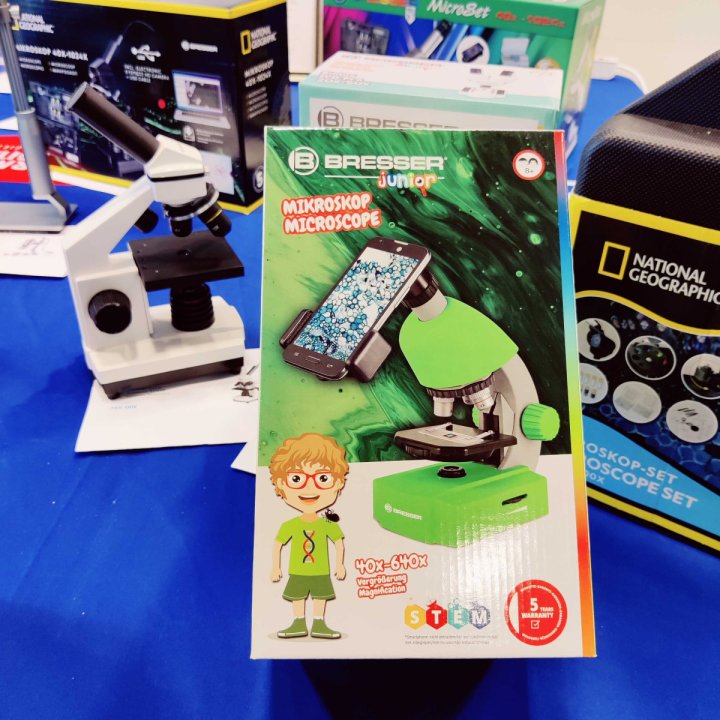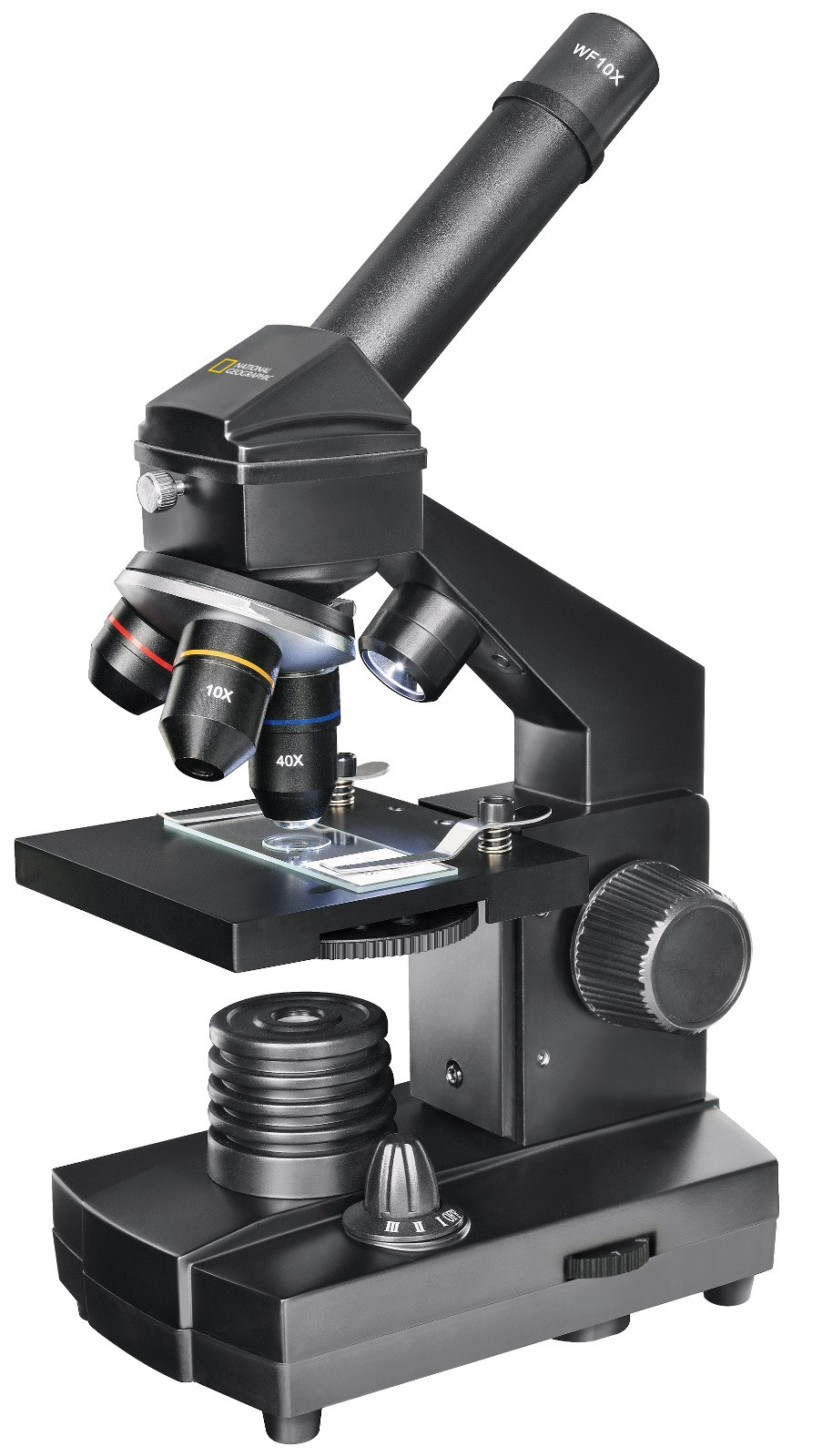Children’s Microscope: Summer Exploration into the World of Microscopy
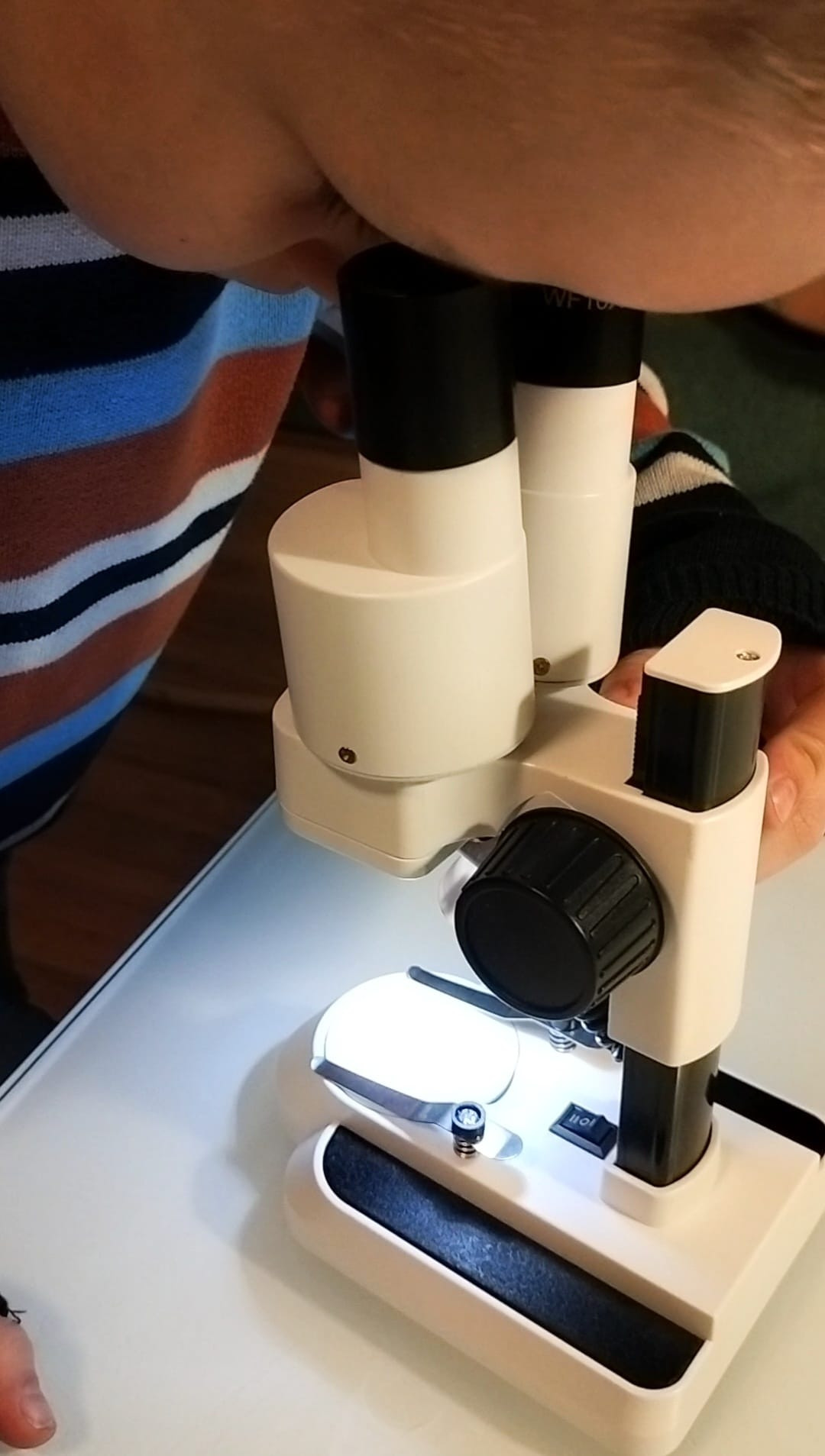
Summer is the perfect time to explore nature, and a children's microscope can open the door to an incredible world hidden from the naked eye. A microscope is not only a fun device but also an effective learning tool that can ignite a passion for science and nature exploration in children. In this blog post, we will share what can be explored with a children’s microscope during the summer, the insights it can provide, and what can be learned from using it.
Microscopy on Summer Adventures
Summer offers numerous opportunities for using a microscope. Here are some ideas of what can be explored:
- Leaves and Plants: Collect various leaves, flowers, and plants. Examine their cells and structural differences with the microscope. You can see the cell walls of leaves, chloroplasts, and other cell parts that make plants come alive.
- Water Samples: Take small water samples from a nearby pond, river, or even rainwater. With the microscope, you can discover microorganisms like paramecia and algae. This can be an eye-opening experience, revealing how full of life water can be.
- Insects: Study the structure of insects, such as ants, butterfly wings, or beetles. You can see the intricate details of wing veins, antennae, and legs that are usually unnoticed.
- Soil Samples: Collect samples from different soils, such as from the garden, forest, or sandy beach. The microscope will reveal the fine details of sand grains, clay particles, and organic matter.
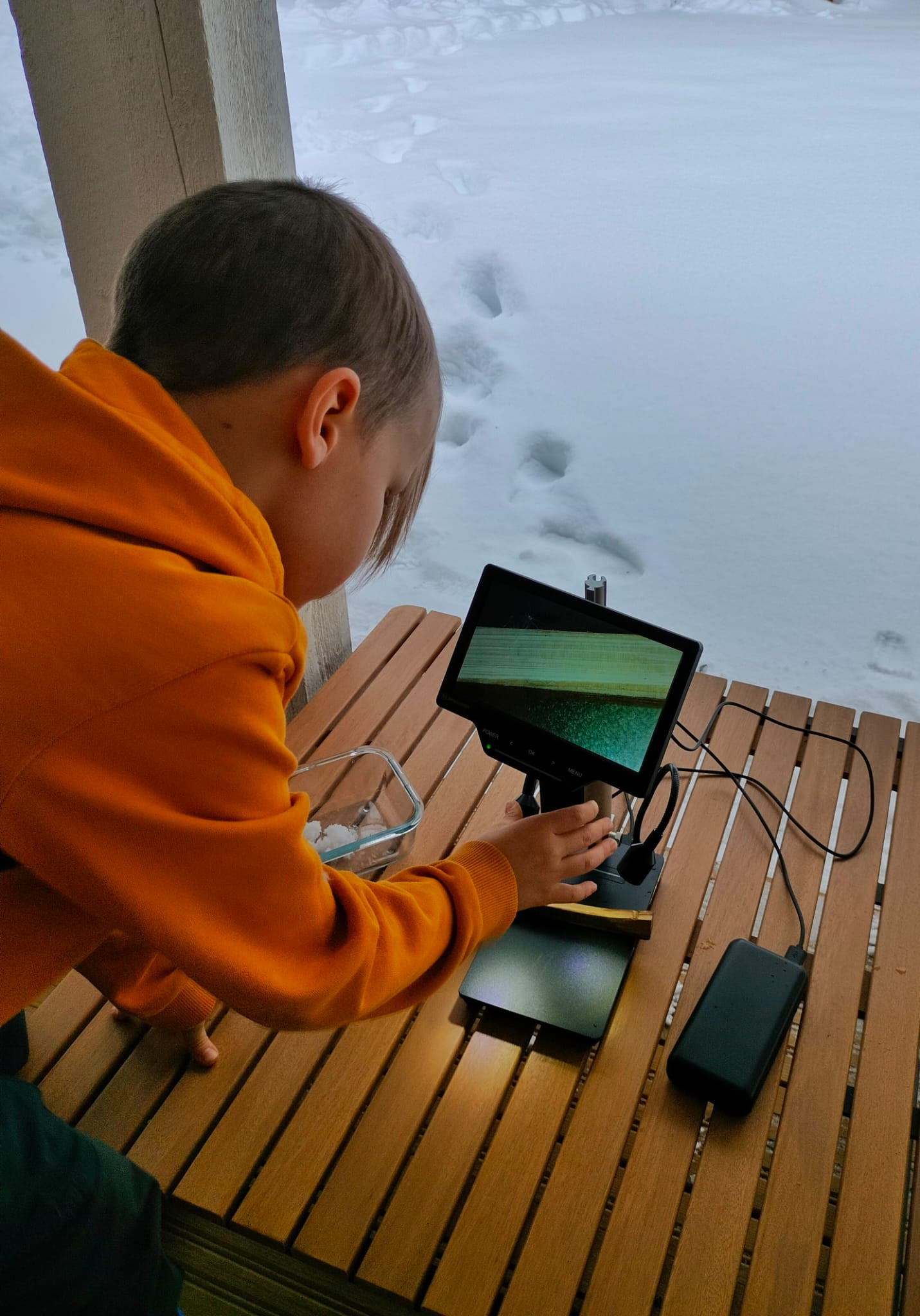
Insights and Learning with a Microscope
Using a microscope can lead to many insights and learning experiences. Children can learn about:
Cell Structure: With a microscope, one can see the structure of plant and animal cells. This helps in understanding that all living beings are made up of cells.
Ecosystems: By studying water samples and soil, children can learn how complex ecosystems are and how they function.
Scientific Process: Using a microscope encourages children to make observations, take notes, and ask questions. This is an important part of scientific thinking and research.
Biodiversity: When children see various microorganisms and cell structures through the microscope, they start to appreciate the diversity and complexity of nature.
Using the Microscope – Fun and Educational
Using a microscope can be fun and exciting for the whole family. Here are some tips to make microscopy appealing and interesting:
Make it an Adventure: Go on an exploration trip together to the garden, forest, or beach. Collect samples and return home to examine them with the microscope.
Keep a Diary: Encourage children to keep a microscopy diary. They can draw what they see and write notes about their observations.
Organize an Exhibition: Let children present their findings to the family or friends. This can be a great way to share what they have learned and inspire others.
Connect to Scientific Concepts: Explain to children how their observations relate to larger scientific concepts, such as photosynthesis, cell functions, and ecosystem dynamics.
Understand Nature Better
Using a microscope helps children understand nature more deeply and appreciate its diversity. It encourages them to look at the world in a new way and develops their curiosity and scientific thinking. When children learn how complex and beautiful even the smallest parts of nature are, they are more likely to appreciate and protect it.
Take a microscope along on summer adventures and let children explore the wonders of nature in detail! With a microscope, summer becomes an exciting and educational journey between the micro and macro worlds.
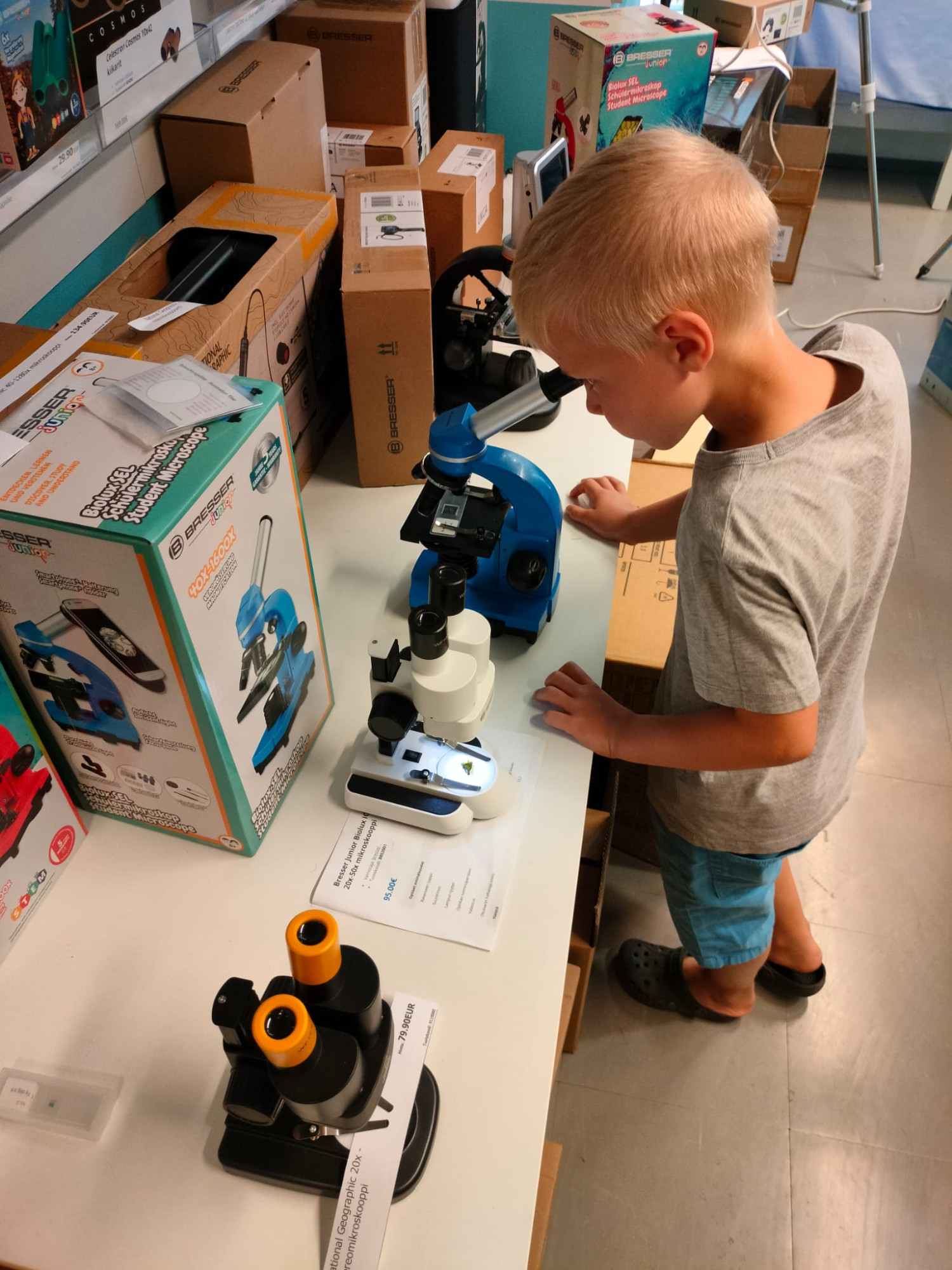
 Explore our range of microscopes here
Explore our range of microscopes here
 Discover children's microscopes here
Discover children's microscopes here




